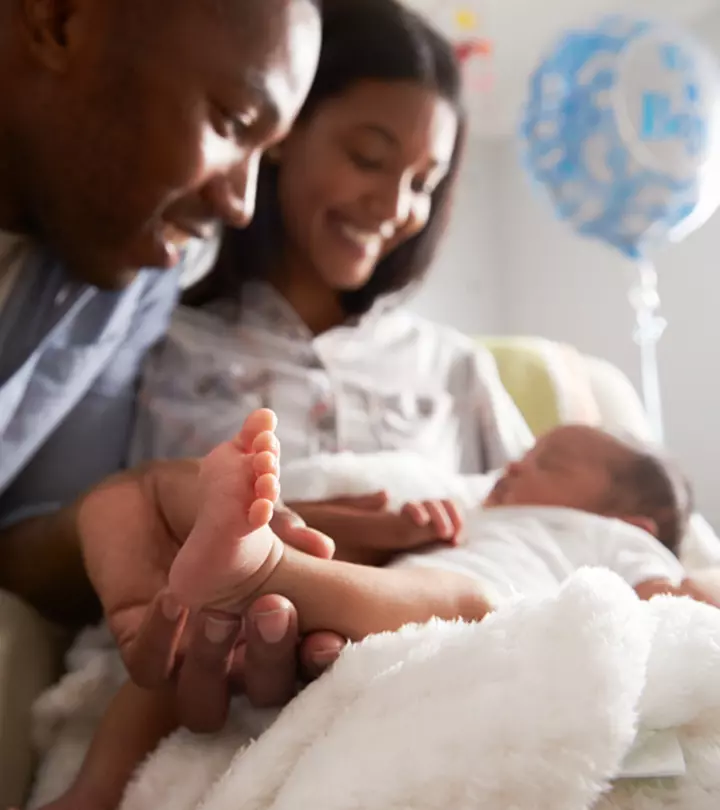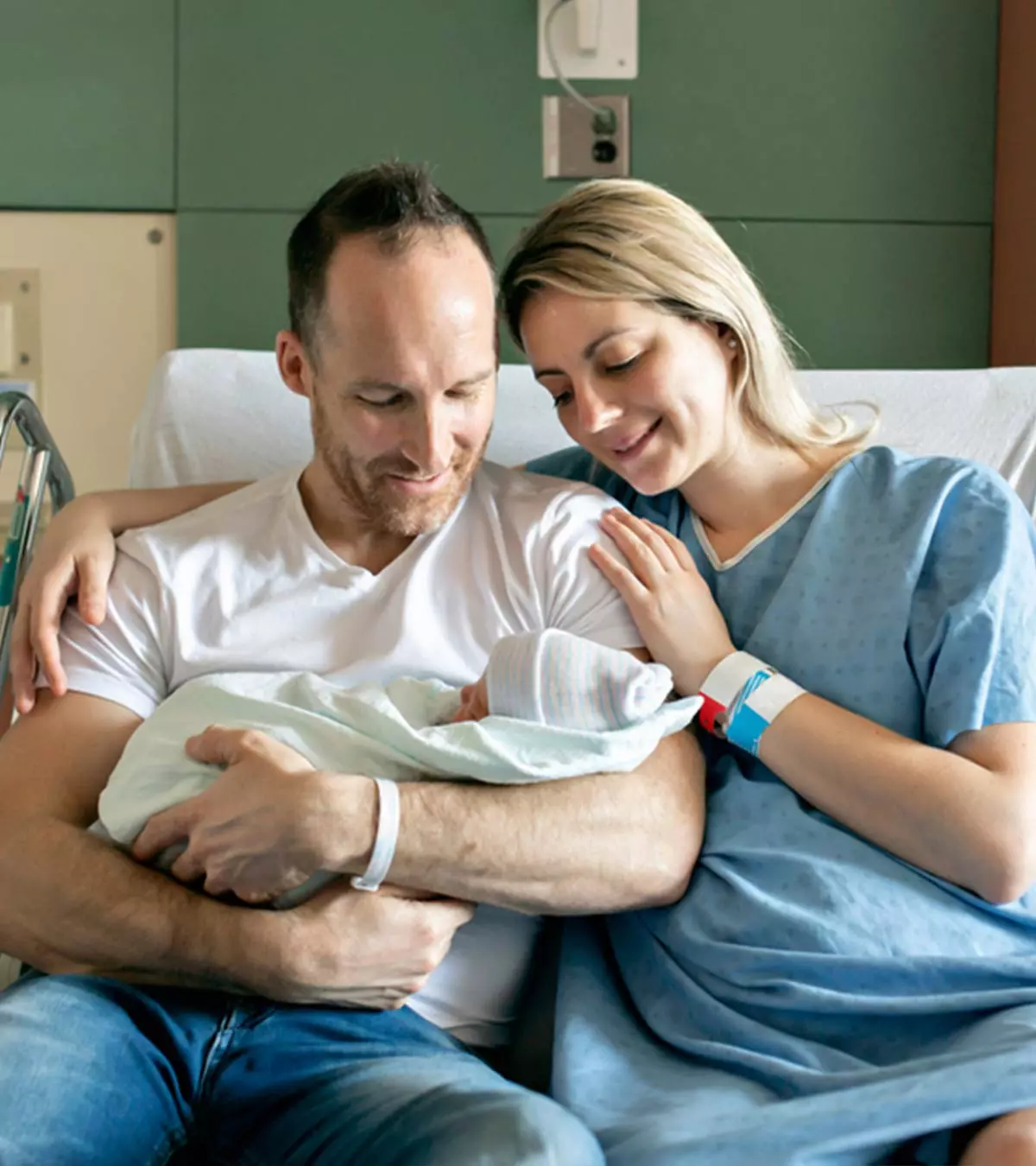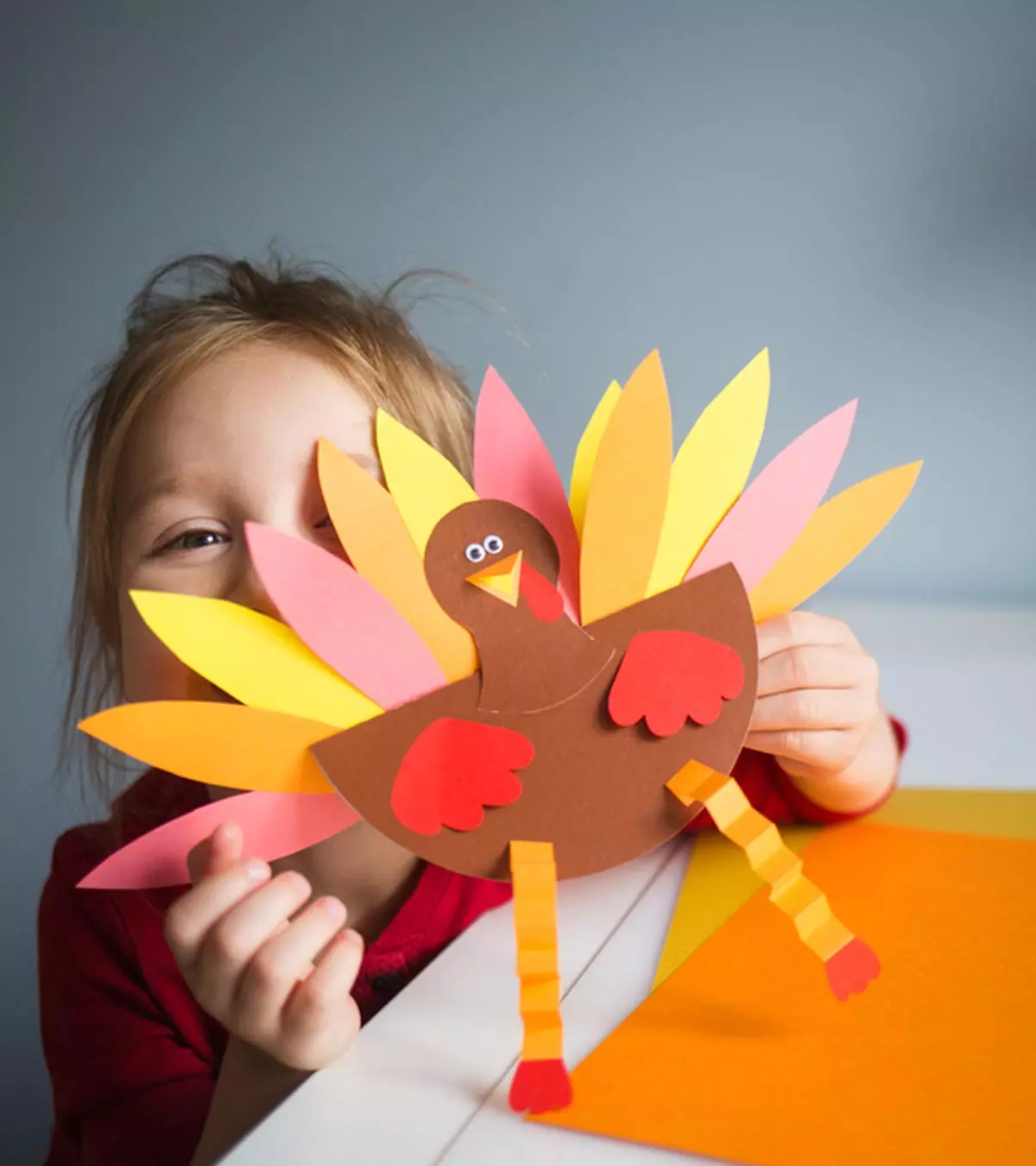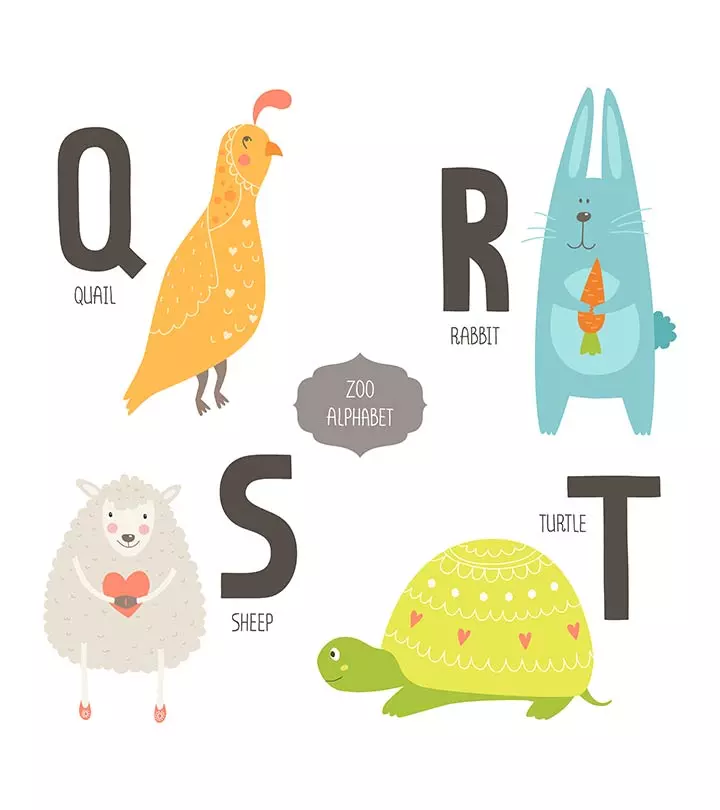
Image: Shutterstock
While the rainy season is an utterly delightful respite from the scorching summer heat, it also means a hot and humid environment that becomes a breeding ground for germs or pathogens (1). The incessant rains and water stagnation help insects and microbes multiply and thrive, which may pose significant risks to your baby’s health. So, you have to step up your baby care game during monsoons.
While we love watching the downpours, following the necessary precautions is essential to reduce your baby’s chances of getting an infection. Keeping your baby cool, sweat-free, and clean in a hygienic environment will ensure they are protected and safe against a host of skin problems. If you are worried about keeping your baby’s skin healthy and happy during the rainy season, here are some essential monsoon baby care tips that you need to follow:
How To Take Care Of Your Baby’s Skin During Monsoons?
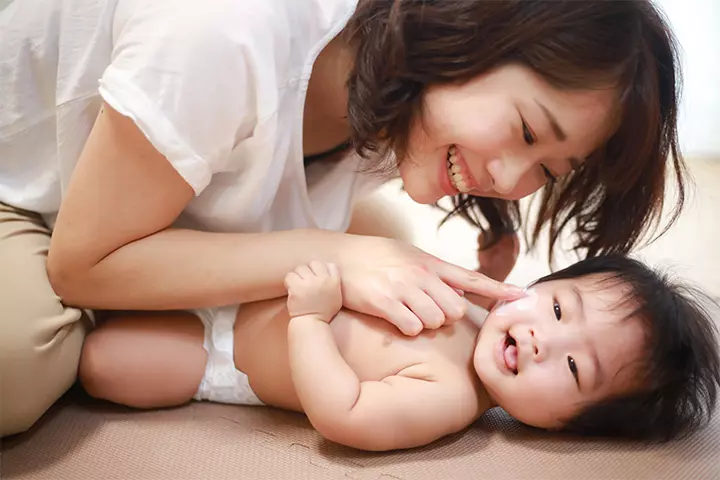
Image: IStock
Newborns are susceptible to infections during the rainy season. Contaminated air, water, and foods can spread diseases and cause skin problems. Since humid weather conditions lead to the spread of bacteria, fungus, and viruses, your baby’s delicate skin needs some extra care and love during the monsoons. Don’t give your baby a bath every day if you are scared of him/her catching a cold. Drench a clean towel in hot water and sponge the baby to get rid of dead skin cells. The following tips will help you keep their sensitive skin soft and infection-free:
Check Your Surroundings
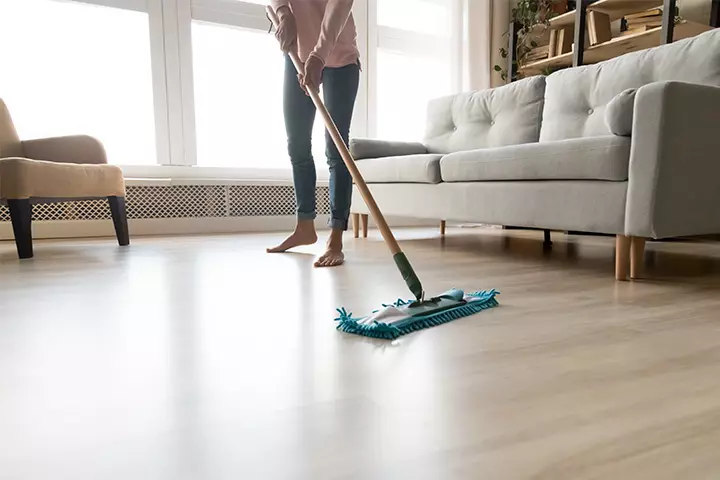
Image: IStock
It is crucial to ensure that your surroundings are clean and dry so that it does not cause the growth of infection-causing microbes. Check the doors and windows for cracks, leaks, and the corners of your home for dampness (that could trigger the development of molds and fungus. Use an organic disinfectant to mop your baby’s room and ensure that there is no stagnant water in the neighborhood. Prune the plants in your garden and clear the drains. These small measures will ensure that your surroundings do not become a breeding ground for mosquitoes and disease-causing germs (2).
Keep Your Baby Clean
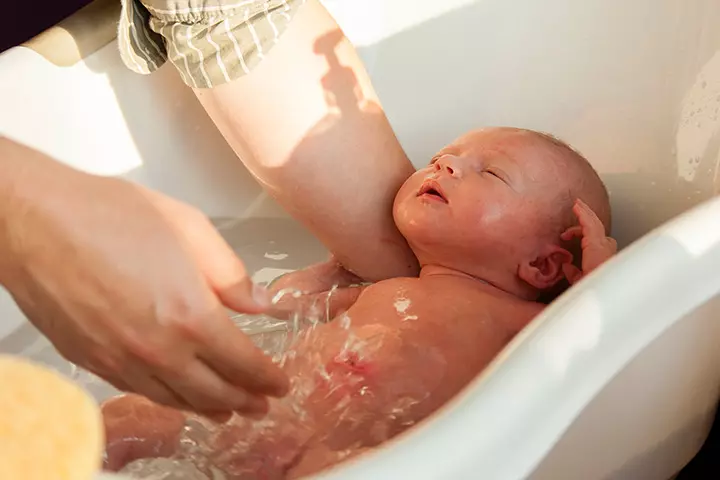
Image: IStock
The sudden temperature drop during the monsoons can invite a host of germs into your surroundings. This can cause health problems like bacterial allergies, skin irritation, and rashes for newborn babies.
Your baby’s skin is prone to infections and irritation (3). Sweat causes bacterial infections that lead to itching, redness, and burning of the skin. So, give your baby a bath daily to maintain healthy skin and hygiene. Thoroughly clean their bodies’ creases and folds. Pay special attention to the underarms, neck, and genitals where infections are more likely to develop. Always choose a gentle baby wash that is free from harsh chemicals to cleanse your baby’s skin. Pat dry your baby after a refreshing bath and dress them in clean, sun-dried, and itch-free clothing (4).
Moisturize With A Gentle Lotion
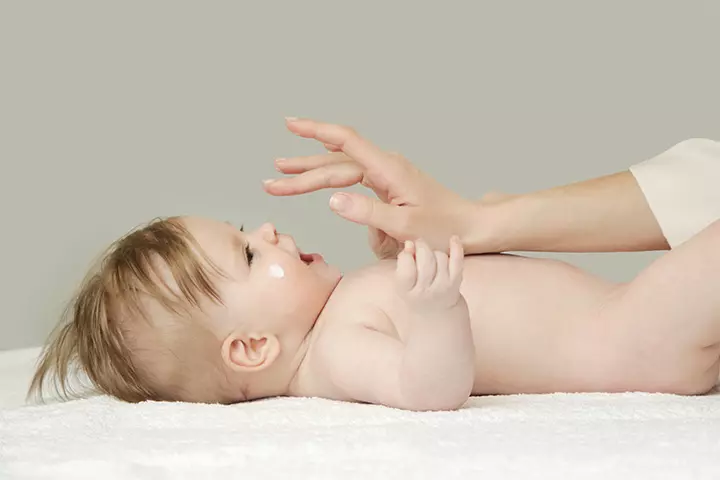
Image: IStock
It is important to keep your baby’s skin moisturized with a gentle lotion or cream that does not irritate their skin or clog their pores. Moisturize the skin while it’s still damp after a bath or during diaper changes. Choose a fragrance-free moisturizer that is well-tolerated by your baby’s skin. You can also perform a patch test before using a new moisturizer to confirm its safety for your baby’s skin. You can use natural ingredients like a hot oil coconut oil massage to keep their skin supple. If your baby develops blisters or rashes, consult your doctor immediately.
Massage With Oil
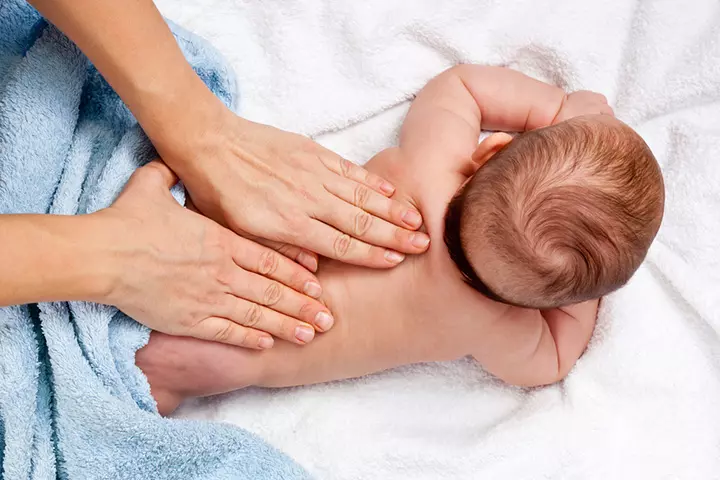
Image: Shutterstock
Massaging your baby with plant-derived oils can be beneficial in maintaining their skin’s natural barrier, improving their growth, promoting sleep and blood circulation (5). Opt for anti-inflammatory oils like sesame, sunflower, and olive oil to keep your baby’s skin soft and smooth. If there is a brand you are particularly interested in, make sure to do a patch test on the baby. It is not necessary that products meant for babies will be safe for every baby’s soft skin type
Regulate The Room’s Temperature
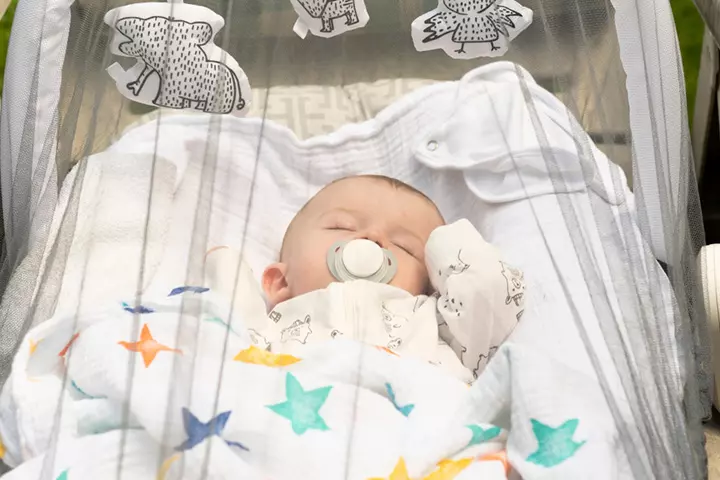
Image: Shutterstock
It will be beneficial to control the room temperature, keeping it far from extremes — neither too hot nor too cold. The hot and humid environment may result in prickly heat rashes that cause itchy skin. Keep your baby wrapped in a piece of thin breathable fabric to save them from mosquito bites. If your baby expresses discomfort with an additional layer of fabric around their body, use mosquito nets and repellents (even during the day).
Take Diaper Breaks
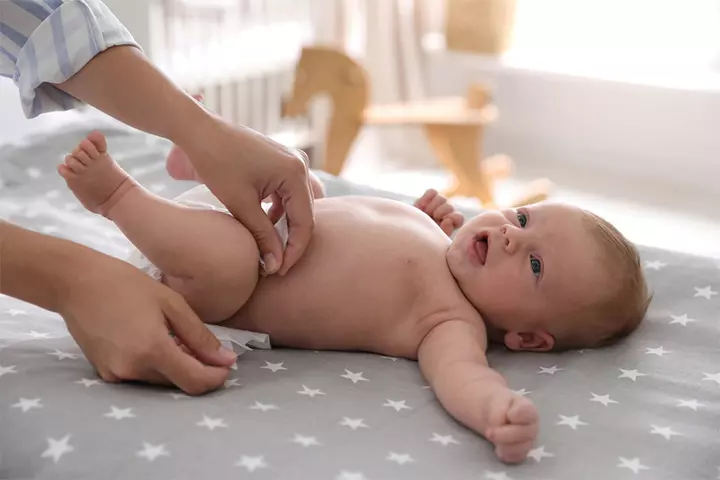
Image: Shutterstock
While diapers are fuss-free, make sure your baby gets diaper breaks. Many parents make the mistake of keeping the diapers on for 24 hours, which will aggravate the itches due to red bumps and rashes, thanks to the rainy season. Change your baby’s diapers regularly to keep out the wetness from pee or potty. As much as possible, save the diapers for outdoor use and let their skin breathe while they are at home. This will help your baby develop fewer nappy rashes (6). Also, steer clear of baby powders containing cornstarch, which can aggravate the skin rashes.
Keep Their Nails Trimmed
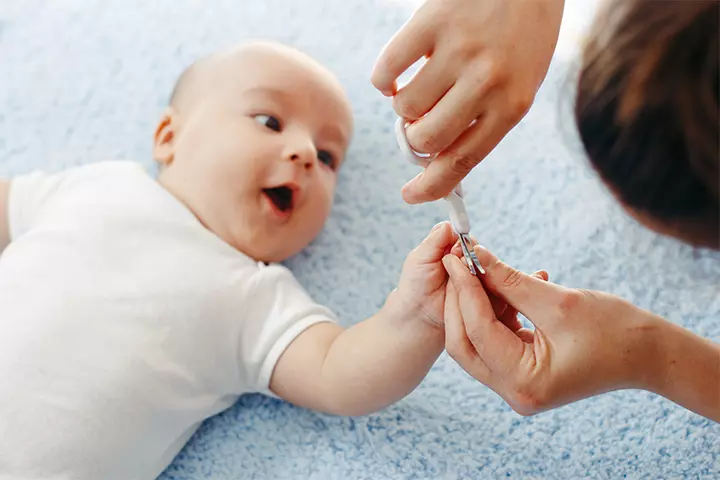
Image: IStock
Your baby’s nails can become infected with bacteria and viruses. Increased growth of pathogens during monsoons can cause nail infections. So, trim your baby’s nails regularly to prevent them from harboring dirt and germs that aggravate rashes. As babies have a habit of sucking their thumb or licking their fingers for comfort, keeping them short and clean is a good practice.
These hygienic measures will help keep your baby safe and protected during the monsoons. Know that even with your best efforts, it is still possible for your baby to develop a skin infection or rash during the monsoons. That is mainly because babies’ epidermis is hypersensitive to weather changes. Humidity is not only likely to cause cold and fever but also unwanted rashes. It will be hard for the baby to go to sleep or eat comfortably. Having said that, before you try any home remedy or use medicines available over-the-counter, consult your doctor. Do you have some additional tips to add to this list? Do share them with us in the comments section below!
References
- Seasonality of viral infections: mechanisms and unknowns
https://www.sciencedirect.com/science/article/pii/S1198743X14610910 - Zika Mosquitoes and Standing Water
https://blogs.cdc.gov/publichealthmatters/2016/03/zikaandwater/ - Skin Physiology of the Neonate and Infant: Clinical Implications
https://www.ncbi.nlm.nih.gov/pmc/articles/PMC4593874/ - Bathing and Skin Care for the Newborn
https://www.urmc.rochester.edu/encyclopedia/content.aspx?contenttypeid=90&contentid=P02628 - Effects of massage & use of oil on growth blood flow & sleep pattern in infants
https://pubmed.ncbi.nlm.nih.gov/11247199/ - Environmental problems and health risks with disposable baby diapers: Monitoring of toxic compounds by application of analytical techniques and need of education
https://www.sciencedirect.com/science/article/pii/S0165993621002314
Community Experiences
Join the conversation and become a part of our nurturing community! Share your stories, experiences, and insights to connect with fellow parents.


